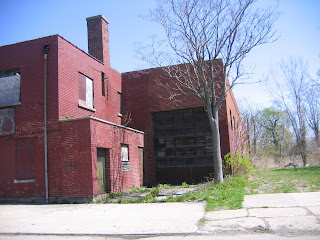Being an urban studies major, I have taken a lot of interest in the impact of housing and lack of affordable housing in urban areas. Buffalo is a perfect example of how unfair practices in the housing market can truly destroy the vitality of a city.
The history of Buffalo is like that of many other manufacturing city. Loss of jobs concentrated poverty into certain areas. Loss of jobs coupled with the issue of public housing segregation pushed Buffalo's east side into poverty with no apparent hope for reprieve. Through unfair housing practices, African Americans were given few options of were to live. As a result, the east side developed as an African American neighborhood.
German and Polish immigrants first developed the area into neighborhoods for working families. Houses were built modestly and often housed one to two families. As industry left, so did many of the immigrants. What was left behind was vacant factories, buildings, and houses that were ignored by the city for many years.
Driving up and down the streets, there are countless vacant houses and buildings. Overall, there is a lack of care and upkeep on these forgotten streets. The concentrated poverty that developed out of a lack of care for the poorer residents has only increased throughout the years.
However, despite being ignored for decades by the local governments, the east side has created an identity for itself. There are many different community groups in the east side dedicated to helping residents as well as helping to alleviate the concentrated poverty. Driving through the east side, I can tell that these neighborhood groups are vital for residents and help to maintain a sense of community.
There are many corner stores providing necessities for neighborhood residents. Many of the shops reflect the ethnicity of those living in the neighborhood. For example, Our World focuses on "Afro centric greeting cards."
I noticed a few murals while I was driving through the neighborhood. Most depicted African Americans due to resident base. There are also a large number of churches in the east side.






There's a lot of conflict over these corner stones, some of them not owned by people from the neighborhood. Locals accuse them of the stores of ripping them off; storwoners say they work under dangerous circumstances. Intersting how a particular ethnic group often dominates the corner stores--Korean-Americans in LA, Yemeni-Americans in Buffalo, and so on.
ReplyDelete